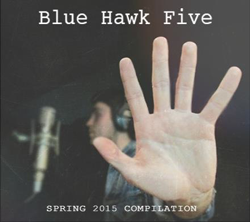In the last decade, there has been a surge of female representation in the entertainment industry. After public demand, we are finally moving past the white, cisgendered heterosexual damsel in distress on the big screen. Characters like Super Woman and Scarlet Witch add variety to a large pool of male-only superheroes, but still lack ethnic diversity. Hence, there is still a lot of room for improvement; many of these diverse female characters are side characters or stereotyped summaries of a gender or ethnicity.
In The Flash (2014-) by the CW, a woman of color is married to Barry Allen, and Cisco, the only Hispanic in the series, is simply a side character to The Flash. And although Superman is technically an alien and therefore a foreigner in the United States, he is still a man with white privilege.
Creators like Haroon, Edgardo Miranda-Rodriguez, and Willow Wilson attempt to dismantle the stereotypical superhero and recreate a more diverse, inclusive main character. Identity is a key theme when discussing representation. In each comic, the main characters are diverse individuals whose lives are constantly impacted by their identities. Jiya from The Burka Avenger’s identity is symbolized by the burka she wears to conceal her identity. When commentators criticized Jiya’s burka usage, Haroon, the creator, defended the character, calling accusations of subjugation of women “completely incorrect.”
“‘The Burka Avenger’ is all about women’s empowerment. All superheroes have disguises. The burka simply is hers,” he explained.
It’s common for superheroes to wear masks to conceal their identity. It is an attack on Jiya’s identity to criticize her burka.
Kamala Khan from Ms. Marvel is a second-generation American of Pakistani descent, redefining what it means to be a Muslim woman. She tells her mother, “You and Baba want me to be a perfect little Muslim girl— straight A’s, med school, no boys, no booze, then some hand-picked rich husband from Karachi and a billion babies.”
Kamala redefines what it means to love and respect her religion, be a respectable woman, and appreciate her Pakistani roots. Despite her complicated personal life, she manages to be an inspiring heroine fighting for what is right. Even though she is conflicted by her culture’s expectations versus her craving for independence, she still loves her parents dearly and does her best to please them.
Kamala is a young girl with a complicated life, yet she still loves herself and accepts herself for who she is. This is important, because many non-white readers may struggle with their identities. Kamala stated, “I tell myself I can do this. I tell myself I’m exactly where I was meant to be.”
Kamala and Jiya can inspire other girls to be who they are unapologetically and boldly. It is why a diverse identity in comics is of utmost importance, and why discussing identity in books can lead to more representation across the industry. Having these characters lead the story also debunks many myths surrounding racial representation. There are many biases regarding color in the entertainment industry, and they are usually damaging ones for minority populations. Many people try to be conscious about their racial prejudices, but it is through representation in the realm of entertainment that we can truly debunk some of these biases.
In La Bonriqueña, we learn about the Puerto Rican environmental crisis first-hand, when Marisol states, “… and with Puerto Rico’s current debt crisis, there aren’t resources available to clean up these landfills or investigate any wrongdoings.” Not only do we learn from Jiya that the burka is a personal choice, but that in Puerto Rico they struggle to protect their environment. Hence, comics can be very informative about issues we may not have heard of, because they are finally focusing on characters outside the normative whiteness that has been at the forefront for decades.
In Ms. Marvel, we also debunk myths surrounding what it is like to be a Muslim Pakistani, which is something myself and may others would’ve never understood based on personal experience. In the comic, Kamala and her father have a heart-to-heart where, despite the pressures of succeeding and following a certain path, she is still loved. He states, “That’s why we gave you your name. You don’t have to be someone else to impress anybody. You are perfect just the way you are.”
Hence, even though there are cultural expectations for Kamala, she is still loved and cared for, which is something that many people may struggle to understand. Many see Kamala’s religion as oppressive and lacking love, but that is certainly not the case.
Evelyn Moncayo, a sophomore Monmouth student, reflected on the importance of representation in the media. She believes that, “It is important because authentic representation can break down barriers, open up new ideas, and create community bonds. Representation reinforces inclusivity, that when people see those in the media who are similar to them it makes them feel included in society. I know I would feel much more included if there was an Ecuadorian or Korean superhero out there I could look up to.”
Representation matters, especially in media. Many may believe that having white characters struggle through plot points is enough, but adding a layer of diversity can communicate so much more. It can inspire minorities, debunk myths, inform us of issues unheard of, and create a more racially conscious society.


